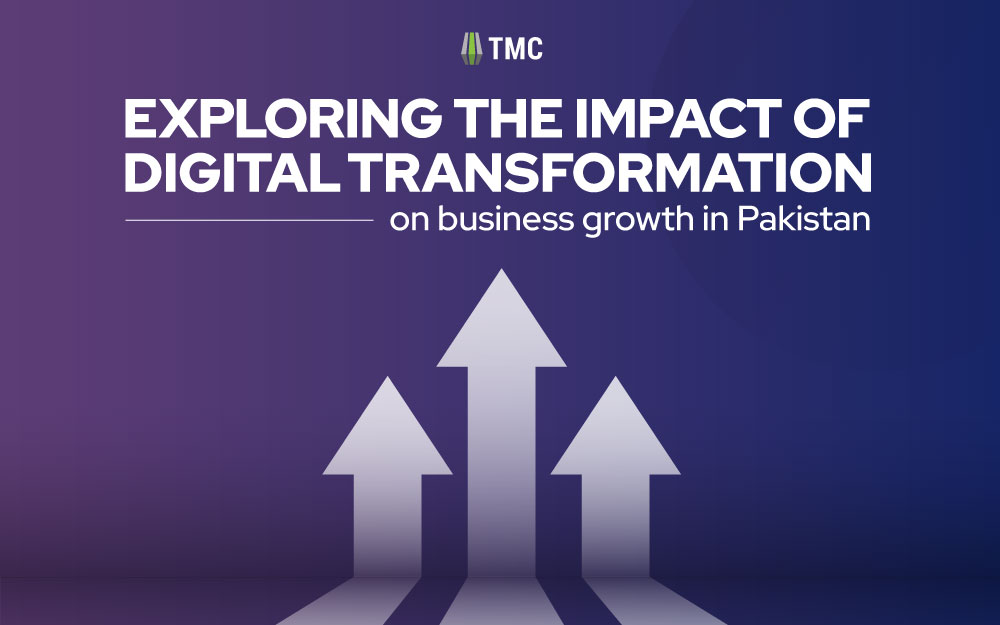Digital Transformation in Pakistan
Pakistan, a country known for its rich history, diverse culture, and breathtaking landscapes, is now embracing a new era of development through digital transformation. In recent years, Pakistan has made significant strides in adopting digital technologies to drive economic growth, improve governance, and enhance the quality of life for its citizens. A crucial aspect of this transformation lies in recognizing human capital as a pivotal asset that can propel the nation towards a brighter future.
How does Digital Transformation work?
Pakistan’s journey towards digital transformation has been both promising and challenging. With a population of over 230 million, Pakistan boasts a vibrant youth demographic, making it well-suited to harness the power of digital technologies. The proliferation of smartphones, increased internet penetration, and the emergence of tech startups have all contributed to the rapid advancement of Pakistan’s digital ecosystem.
E-commerce has also experienced a remarkable growth, with new state-of-the-art platforms enabling businesses to reach a wider audience. The financial sector has been revolutionized by fintech companies, which have provided convenient and accessible banking solutions to the unbanked and underbanked populations. Additionally, the government has also initiated several digital initiatives aimed at providing social welfare benefits to marginalized communities more efficiently, all are a byproduct of the digitization of data.
Digital Transformation Explained
Amidst these digital developments, the recognition of human capital as a valuable asset is paramount. Pakistan’s burgeoning youth population is not merely a demographic statistic but a potential catalyst for innovation, entrepreneurship, and economic growth. Here’s why human capital is central to Pakistan’s digital transformation:
- Skilled Workforce: Investing in education and training programs is essential to build a skilled workforce capable of thriving in the digital age. Pakistan’s youth can be upskilled to meet the demands of emerging industries such as artificial intelligence, data science, and cybersecurity.
- Innovation and Entrepreneurship: Pakistan’s youth is filled with creative potential. Encouraging innovation and entrepreneurship can lead to the development of homegrown startups that drive economic growth and create jobs. Initiatives like the National Incubation Centers and PlanX are nurturing a new generation of tech entrepreneurs.
- Digital Inclusion: Leveraging human capital involves ensuring that all segments of society have access to digital tools and resources. Bridging the digital divide by providing affordable internet access to rural areas can empower individuals and communities to participate in the digital economy.
- Government Policies and Collaboration: Collaboration between the government, private sector, and educational institutions is vital. Policies that support research and development, attract foreign investments, and create an enabling environment for startups can further harness the potential of human capital.
- Data-Driven Decision Making: Pakistan’s digital transformation is generating vast amounts of data. Developing data analytics and data science skills within the workforce can help the country make informed decisions in various sectors, from healthcare to agriculture.
How Pakistan can flourish by reaping the benefits of Digital Transformation?
Despite the immense potential, Pakistan faces several challenges on its path to digital transformation. These include issues related to cybersecurity, digital literacy, and infrastructure development. Addressing these challenges will require a concerted effort from both the public and private sectors.
To unlock the full potential of human capital in Pakistan’s digital transformation, the following steps should be considered to have positive outcomes of digital transformation;
Investment in Education: Prioritize investments in education, focusing on science, technology, engineering, and mathematics (STEM) disciplines. Collaboration between universities and industry can help tailor education to market needs.
Adoption of new technologies: Be prepared to adapt to evolving technologies, cybersecurity threats, and global market changes, ensuring the resilience of digital transformation initiatives
Digital Literacy: Launch nationwide digital literacy programs to ensure that everyone can participate in the digital economy. This includes both urban and rural populations.
Innovation Ecosystem: Continuously nurture the innovation ecosystem by providing support to startups, simplifying regulatory frameworks, and encouraging research and development.
Measuring National Progress: Regularly assess and reports on the progress of digital transformation efforts using key performance indicators and benchmarks even on a state level.
Cybersecurity: Strengthen cybersecurity measures to protect critical digital infrastructure and promote a safe online environment for businesses and individuals.
Digital Transformation is here to stay
Pakistan’s digital transformation is not just about adopting technology; it’s about recognizing the immense potential of its human capital. By investing in education, fostering innovation, and promoting digital inclusion, Pakistan can unleash the power of its youth, transforming them from passive consumers of technology into active creators and contributors to the digital revolution. In doing so, Pakistan can pave the way for a more prosperous and technologically advanced future for its citizens and also getting a step closer in making Pakistan another competent IT hub in the region.

